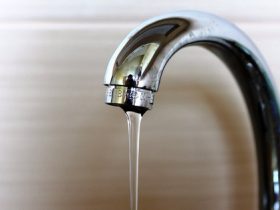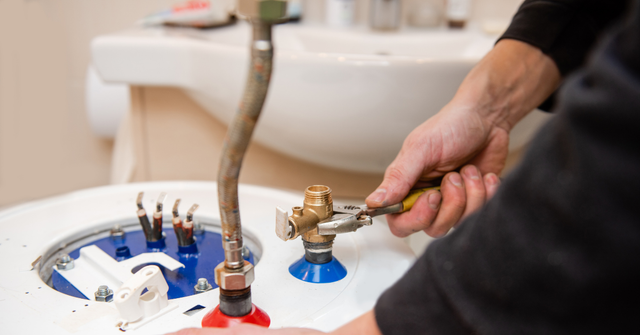Rapid Fixes for Limited Water Pressure in Your Home
Rapid Fixes for Limited Water Pressure in Your Home
Blog Article
Have you been on the lookout for facts and techniques concerning Dealing with Low Water Pressure in Your Home?

Low water pressure in your home can be an aggravating problem, impacting everything from showering to washing recipes. If you're experiencing weak water flow, there are several feasible causes and solutions to explore. In this guide, we'll discuss usual factors for low water pressure and practical actions to deal with the concern effectively.
Introduction to Low Water Stress
Low tide stress occurs when the circulation of water from your faucets, showers, and other fixtures is weak than common. This can make daily tasks extra tough and much less reliable. Recognizing the causes of low tide pressure is important to finding the best option.
Common Sources Of Low Water Pressure
Faulty Pressure Regulators
Stress regulatory authorities are accountable for maintaining consistent water pressure in your home. If they malfunction, it can cause low tide stress or uneven flow throughout the house.
Metropolitan Water Supply Issues
Often, the trouble exists outside your home. Local supply of water concerns, such as main line leakages or maintenance job, can temporarily reduce water pressure in your location.
Pipeline Obstructions
Gradually, pipelines can end up being clogged with natural resource, sediment, or debris, restricting the flow of water. This is a typical problem in older homes with galvanized steel pipelines.
Corrosion
Corrosion within pipelines can result in leaks and minimized water stress. Rust build-up can restrict water flow, particularly in aging plumbing systems.
Just How to Identify Low Tide Pressure
Evaluating Pipelines
Check noticeable pipelines for indicators of leakages, corrosion, or blockages. Focus on any unusual noises, such as banging or rattling pipes, which might suggest issues within the plumbing system.
Consulting with a Plumber
If you're incapable to identify the root cause of low water pressure, consider employing a professional plumber to conduct an extensive inspection. They can identify underlying problems and recommend suitable options.
Checking Faucets and Fixtures
Start by evaluating the water pressure at different faucets and fixtures throughout your home. If the issue is separated to specific locations, it might indicate localized issues.
DIY Solutions to Repair Low Water Pressure
Flushing Water Heater
Debris build-up in the water heater can limit flow and decrease efficiency. Purging the storage tank occasionally aids eliminate debris and keep ideal performance.
Examining Pressure Regulator
Guarantee that the pressure regulatory authority is operating correctly. Adjusting or replacing the regulatory authority can help recover correct water pressure throughout your home.
Cleaning Up Aerators and Showerheads
Natural resources can gather in aerators and showerheads, decreasing water flow. Eliminate and clean these elements on a regular basis to enhance water stress.
Clearing Up Clogs in Piping
For minor blockages, attempt using a plumbing serpent or chemical drainpipe cleaner to clear blockages in pipes. Be cautious when using chemicals and comply with safety and security standards.
When to Call a Professional Plumber
If DIY initiatives fall short to resolve the concern or if you think substantial plumbing issues, it's finest to seek support from a certified plumber. They have the know-how and tools to resolve complicated problems safely and successfully.
Safety Nets to Preserve Water Pressure
Installing a Stress Booster
Think about setting up a pressure booster pump to improve water stress in areas with consistently low circulation. This can be specifically advantageous for multi-story homes or residential or commercial properties with high-demand components.
Tracking Water Use
Bear in mind water use habits and prevent ill-using the plumbing system. Simple changes, such as staggering showers and washing loads, can assist preserve adequate water stress.
Routine Maintenance
Arrange routine maintenance for your plumbing system to avoid issues such as deterioration, leakages, and blockages. Attending to minor troubles early can help prevent more significant fixings later on.
Final thought
Taking care of low water stress can be discouraging, however recognizing the underlying causes and applying ideal solutions can restore ideal circulation throughout your home. Whether it's cleaning aerators, examining pipelines, or speaking with a plumber, taking positive steps can guarantee a consistent supply of water for your daily needs.
How to Fix Low Water Pressure In Your Home
Municipal Water Supply Issues
Scheduled maintenance, high demand, and water main breaks are all potential causes for low water pressure within a city or county’s water lines. While there’s not much you can do to personally fix a problem with your city or county’s water supply system, you can play a big role in documenting the issue and alerting those who can.
How to fix it:
Ask your neighbors if they are experiencing any issues with low water pressure. If multiple homes are affected, it’s likely related to the city’s water line. Contact the local Water Authority to see if there is any maintenance taking place that might be affecting your supply. Also let them know of your specific issues. If other homeowners report the same issues, they’ll know that there could be a larger issue to look into. Faulty Fixtures
A damaged or clogged shower head, faucet or appliance is the first thing we’d suggest checking, especially if low water pressure appears to be isolated to a specific area of your home.
How to fix it:
First, turn off the main water supply to your home. Check the affected appliances for build-up or debris. In the case of a faucet, you can simply unscrew the aerator at the tip of the faucet. Showerheads should be fully detached from the water pipe. While the appliances are detached, you may want to check the water supply to determine if the fixtures were in fact the issue. To clean, soak the showerhead or aerator in vinegar and brush off any visible debris. Reattach the fixtures and check the water pressure again. If it is still low, there is likely a deeper issue at hand, which can be determined by a professional plumber. Pipe Obstructions
Mineral deposits, rust or other debris within water pipes can lead to blockages or corrosion over time.
How to fix it:
When you think of a clog, you probably think of a drain clog. While there are many DIY solutions to clearing a drain, clogs in a water pipe will almost always require the help of a professional plumber. A plumber will be able to locate the affected pipe and clean out any debris or mineral deposit buildup. In severe cases, the pipe may need to be replaced. Your plumber might also recommend a water softening system to remove the minerals from your home’s water supply that can contribute to pipe blockages over time.
Plumbing Leak
Undetected water line leaks can divert water away from your residential pipes, reducing the water pressure in your fixtures.
How to fix it:
Check your water meter by turning off all water sources and monitoring the meter for any movement, which could be a clear indicator of a potential leak. Check all visible pipes for signs of leaking, including water stains, active dripping or damp spots around the pipe. Inspect fixtures, including faucets and showerheads, for any drips. Test the pressure but recording the pressure with the main water valve shut off. Leave off for a few hours and test again. A significant drop in pressure is a clear sign of a leak. https://kiddcoplumbing.com/plumbing-blog/how-to-fix-low-water-pressure/

I am very curious about Low Water Pressure in the House? and I am hoping you appreciated my entry. Kindly take the time to share this post if you liked it. Thanks a lot for being here. Revisit us soon.
Website Report this page